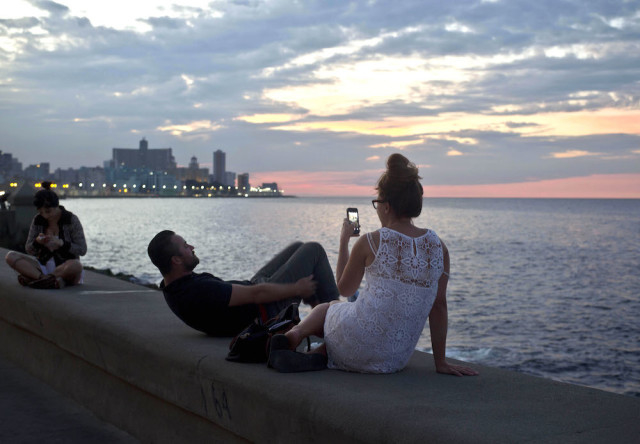Cuba plans to beam Wi-Fi signals at 35 public spaces in the first such offering for the population at large, whose Web access has been mostly limited to desktop rentals in state-owned Internet parlors.
Cuba will also cut the price for surfing the net from $4.50 to $2 per hour, the chief spokesman for the state telecommunications monopoly Etecsa told the official newspaper Juventud Rebelde in Thursday’s editions.
“If the price is lowered then it would be a very good option,” Havana resident Marisel Batista said. “This is very favourable, it’s very accessible for all of us.”
The island has one of the lowest Internet usage rates in the world with virtually no home broadband service and extremely high rates for foreigners and a tiny number of homes and businesses allowed to be wired.
For university student Jensy Palacios, regardless of the more than half drop in price, it would still be too expensive.
“In general, it is a very positive measure but the price still has to drop by a lot. $2 is still to high for the average Cuban,” he told Reuters.
Only 3.4 percent of Cuban homes are connected, and most of those have intranet, not Internet, according to data from the International Telecommunication Union, a U.N. agency.
“It is very good because it was still very expensive at $4.50 because not everybody has those kinds of funds,” another Havana resident, Maria Antonia Davila said.
But increasingly Cuban officials have been commenting about demand for better Internet access.
At the same time the United States has promoted the Internet in Cuba has part of the recent opening to its longtime nemesis, for example relaxing the U.S. economic embargo of Cuba to allow U.S. companies to do Internet-related business here.
The Wi-Fi signals will be beamed to 35 public spaces including five in Havana, Etecsa spokesman Luis Manuel Diaz Naranjo told Juventud Rebelde. Each spot would be able to handle 50 to 100 users with a speed of one megabit per second per user.
Reuters
 CGTN America
CGTN America People taking photos along the waterfront promenade known as the Malecon in Havana, Cuba , may soon be able to get Wi-Fi on their smart phones. (AP Photo/Ramon Espinosa)
People taking photos along the waterfront promenade known as the Malecon in Havana, Cuba , may soon be able to get Wi-Fi on their smart phones. (AP Photo/Ramon Espinosa)
